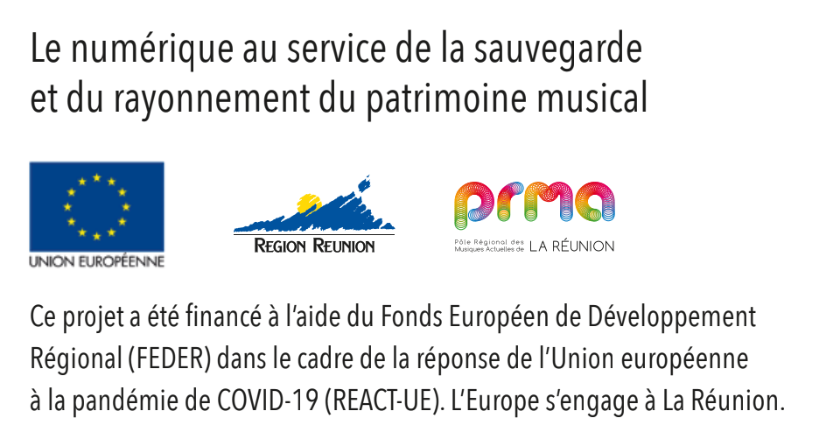Ten anthems of Reunion
from the 1950s to the 1980s
publié par
Fanie Précourt
18 september 2023
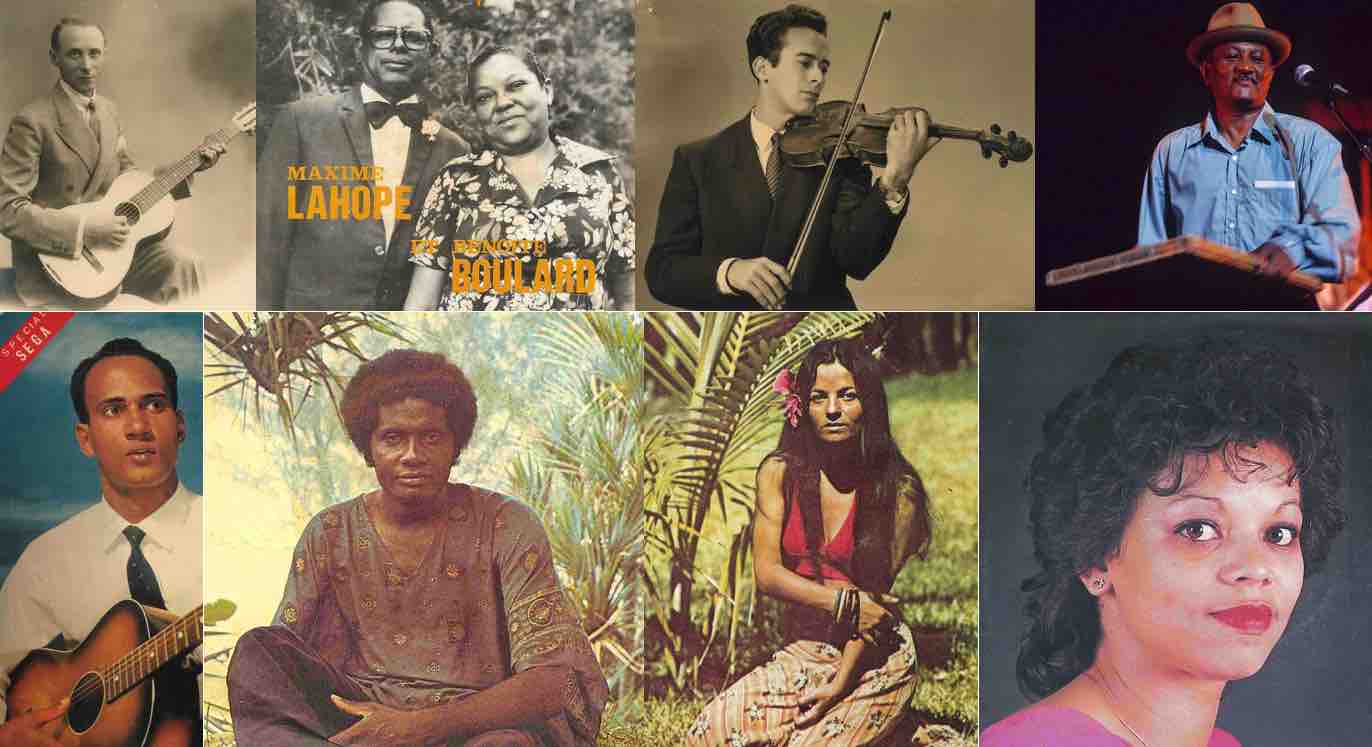
 P'tite fleur aimée (Georges Fourcade/Jules Fossy)
P'tite fleur aimée (Georges Fourcade/Jules Fossy) 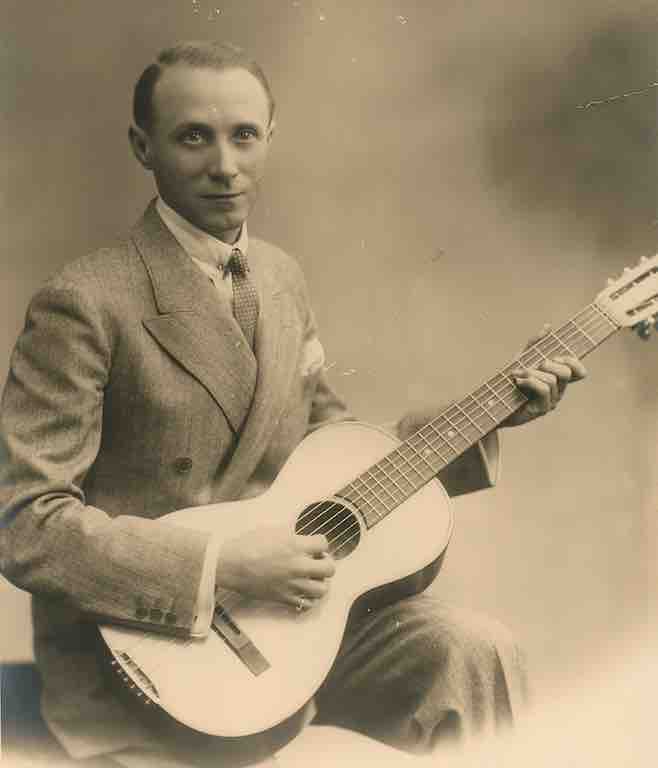
P’tite fleur aimée is the best-known folk song by George Fourcade (1884-1962), who was nicknamed the “Creole bard”. It is also one of the first pieces of music from Reunion to have been recorded on a 78 rpm (Odeon 238 927) in 1926.
La rosée tombée
 La rosée tombée (Maxime Laope) Benoîte Boulard et Maxime Laope, accompagnés par Loulou Pitou et son ensemble
La rosée tombée (Maxime Laope) Benoîte Boulard et Maxime Laope, accompagnés par Loulou Pitou et son ensemble 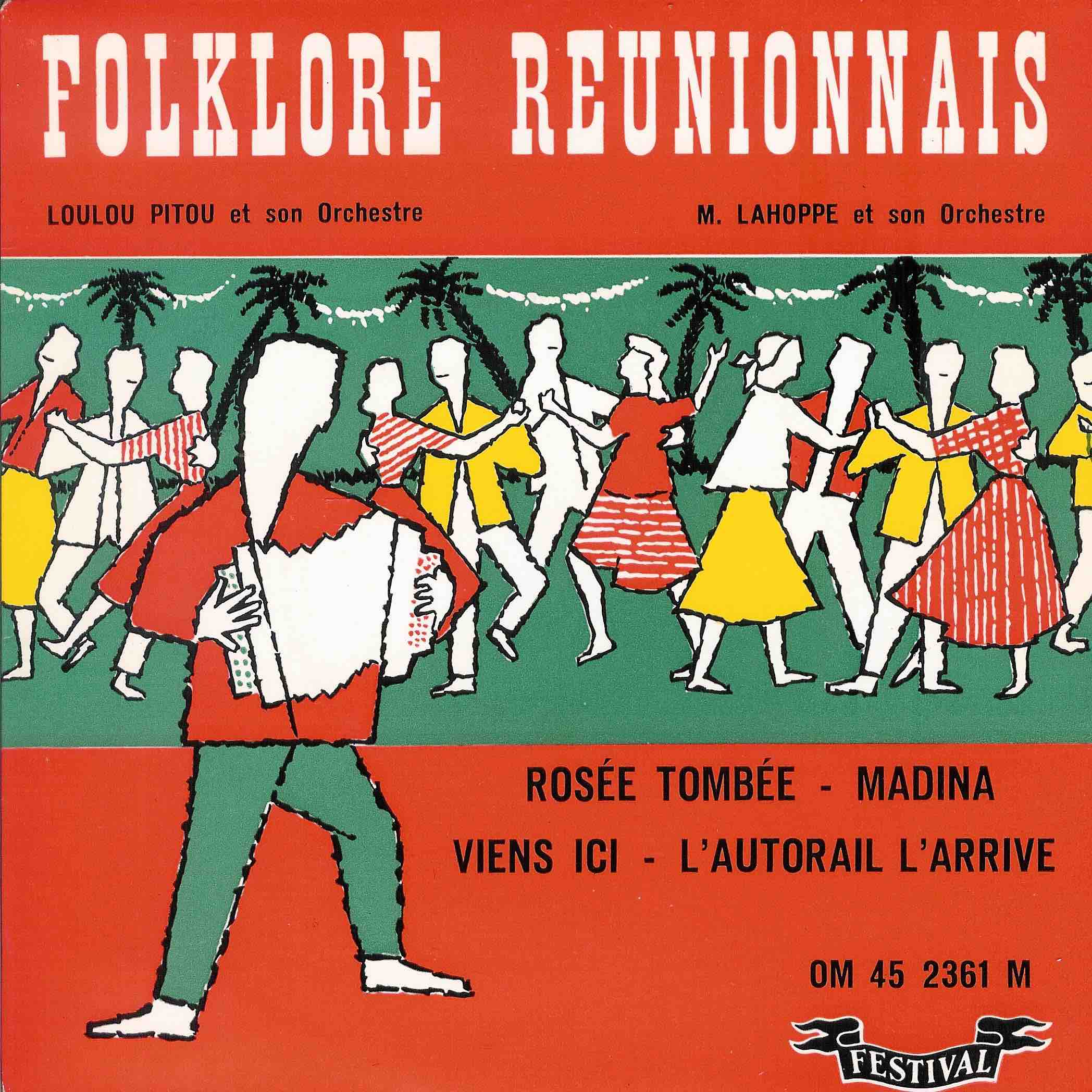
La rosée tombée (“Fallen dew)” is a Festival OM 452361 single. In the 1950s Benoîte Boulard (1927-1985) was the first woman to become a popular singer in Reunion alongside Maxime Laope (1922-2005). In 1953 the duo won first prize with this sega at the Jeux, danses et chansons (“Games, dances and songs”) radio talent show that was held place at the ORTF public television station.
L'amour l'est doux
 L' amour l'est doux (Luc Donat) 45 T Dindar 25 025
L' amour l'est doux (Luc Donat) 45 T Dindar 25 025 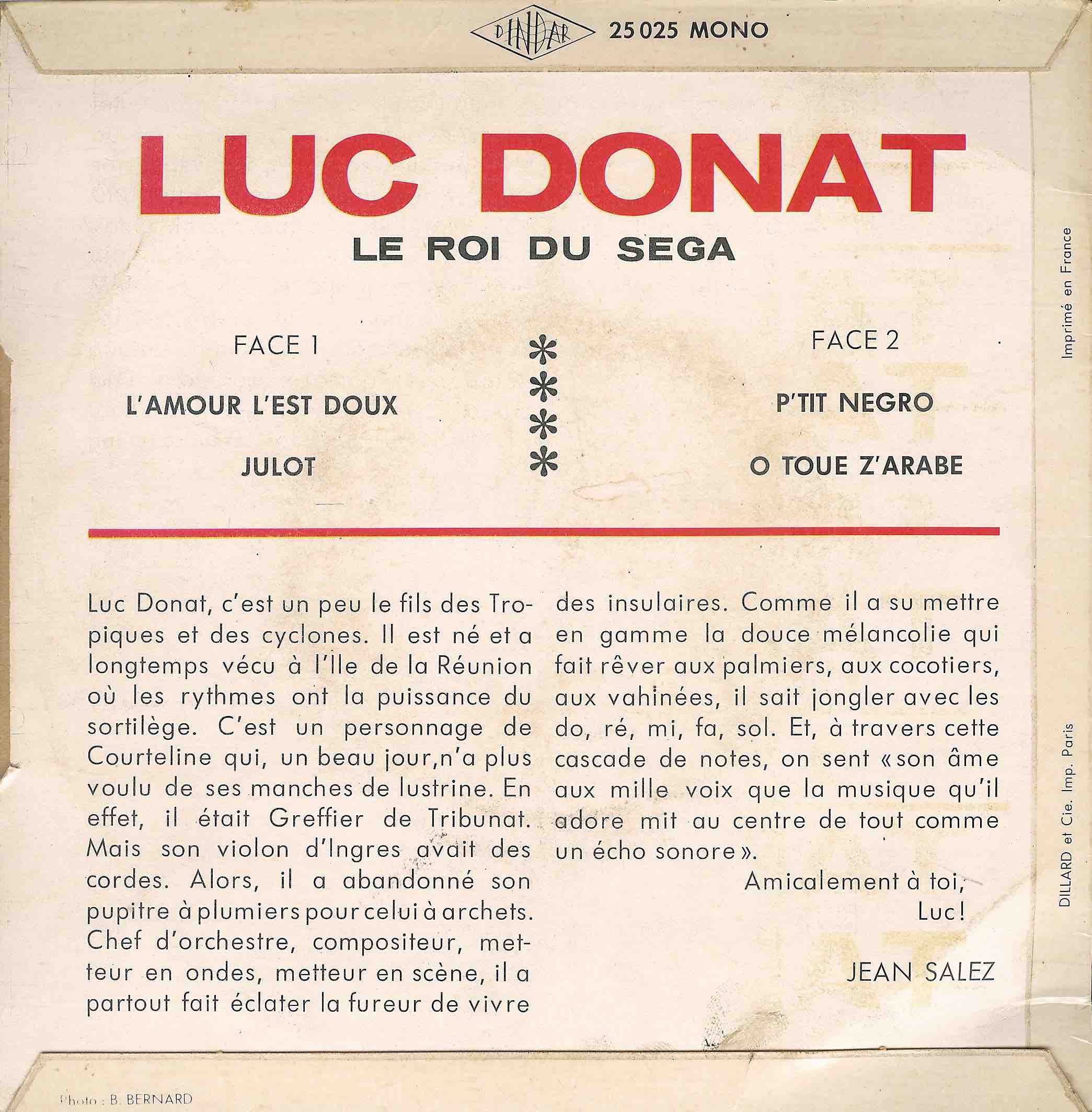
L’amour l’est doux (“Love is sweet”) was first sung by the virtuoso violinist Luc Donat (1925-1989) in the late 1950s. Nicknamed the “king of sega”, he became an unofficial ambassador for the genre internationally with this timeless melody which was released six times as a 78 rpm record and single.
Voleur canard
 Voleur canard, André Philippe et son orchestre, 45 Tours Dindar 25 005
Voleur canard, André Philippe et son orchestre, 45 Tours Dindar 25 005 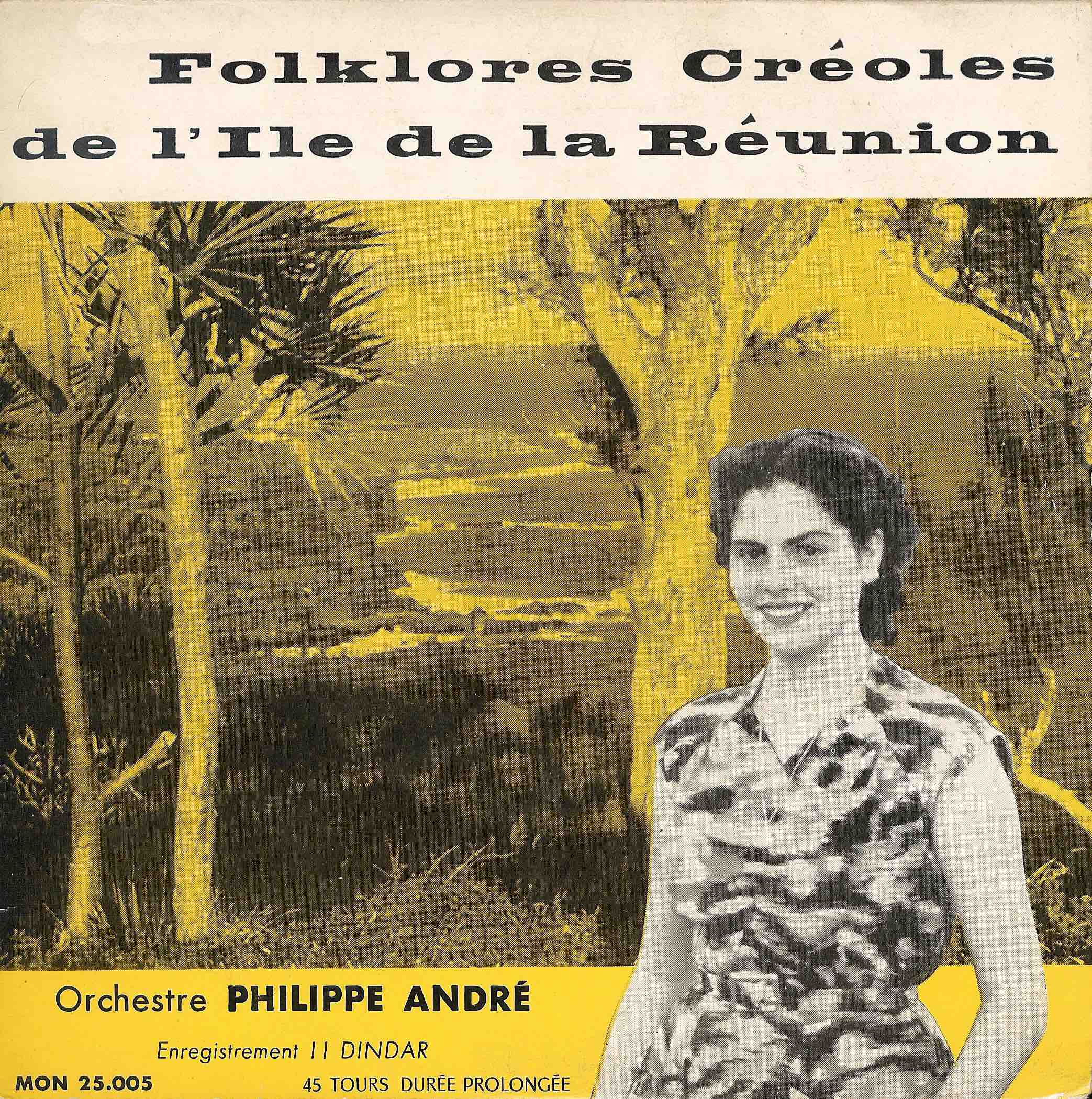
Voleur canard (“Duck thief”) is a humorous sega composed by Jules Joron (1936-2002) and first performed by the André Philippe ensemble. It was recorded at the end of the 1950s on the 4-track single Dindar MON 25 005. This highly realistic song describes a real-life experience.
À cause fifine
 À cause fifine (Jules Joron/Alfred Vienne) André Philippe et son ensemble folklorique, 45 Tours Dindar 25 015.
À cause fifine (Jules Joron/Alfred Vienne) André Philippe et son ensemble folklorique, 45 Tours Dindar 25 015. 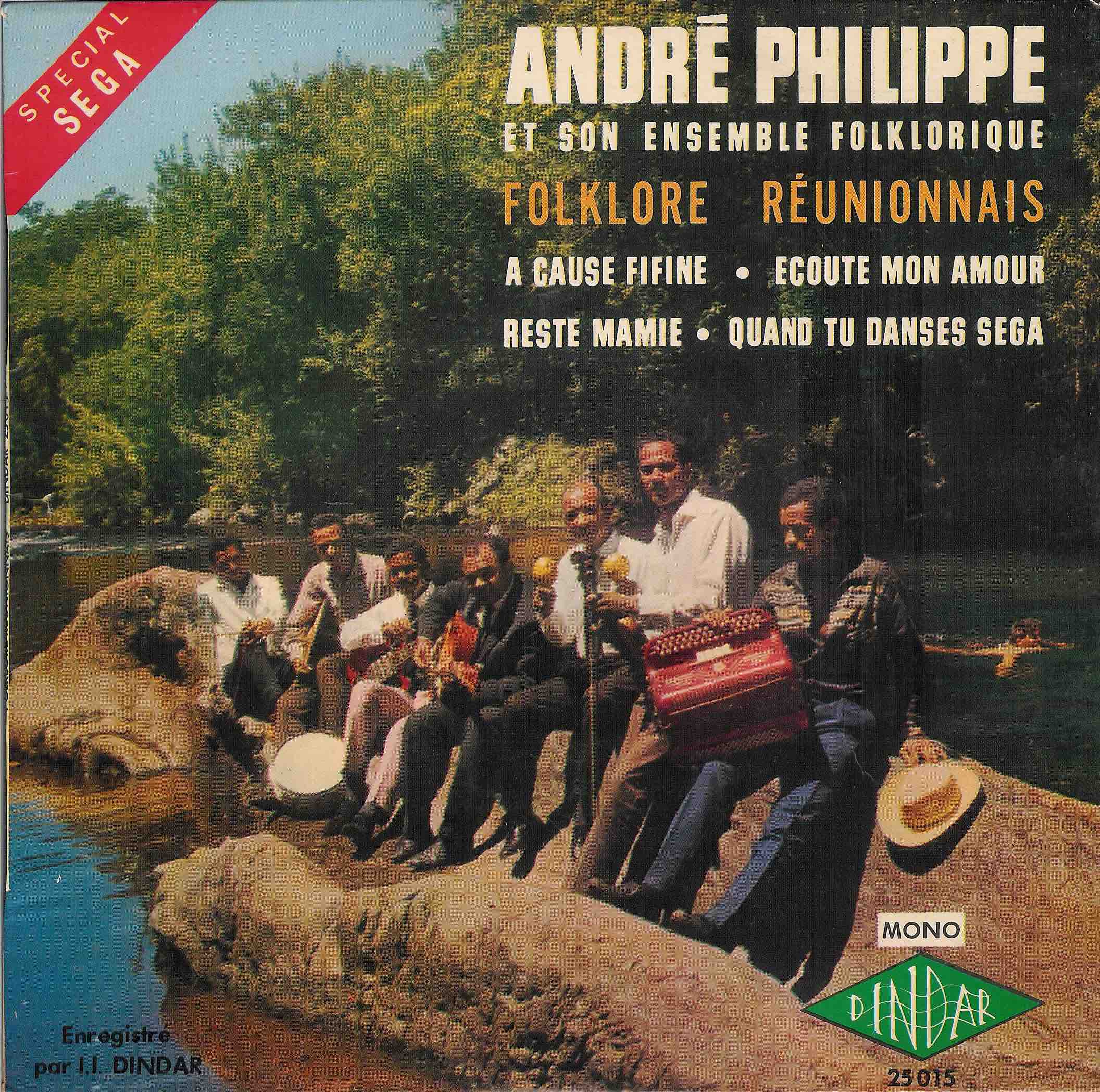
Recorded in the early 1960s, À cause fifine (“Why, girl?”) is a classic, composed by accordionist Alfred Vienne and written by violinist Jules Joron. A timeless melody, it was first released on the 4-track single recorded by Andre Philippe (1916-1988) and his folk ensemble (Dindar 25014).
Valet valet
 Valet valet (Traditional/Arr. Firmin Viry)
Valet valet (Traditional/Arr. Firmin Viry) 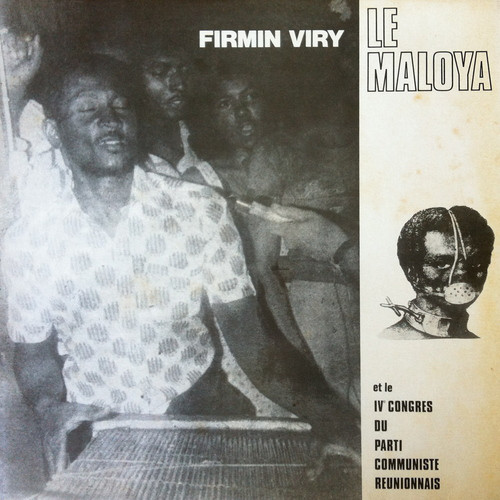
Made popular in 1976 by Firmin Viry due to recordings produced by Reunion’s Communist Party (33 T PCR 01), Valet Valet has its origins in traditional Indian Ocean music. In 1881, Charles Baissac was the first to write down the words in his study of Mauritian Creole
La rosée su feuilles songes
 La rosée su feuilles songes (Alain Peters), Caméléon, Dindar 77 0007.
La rosée su feuilles songes (Alain Peters), Caméléon, Dindar 77 0007. 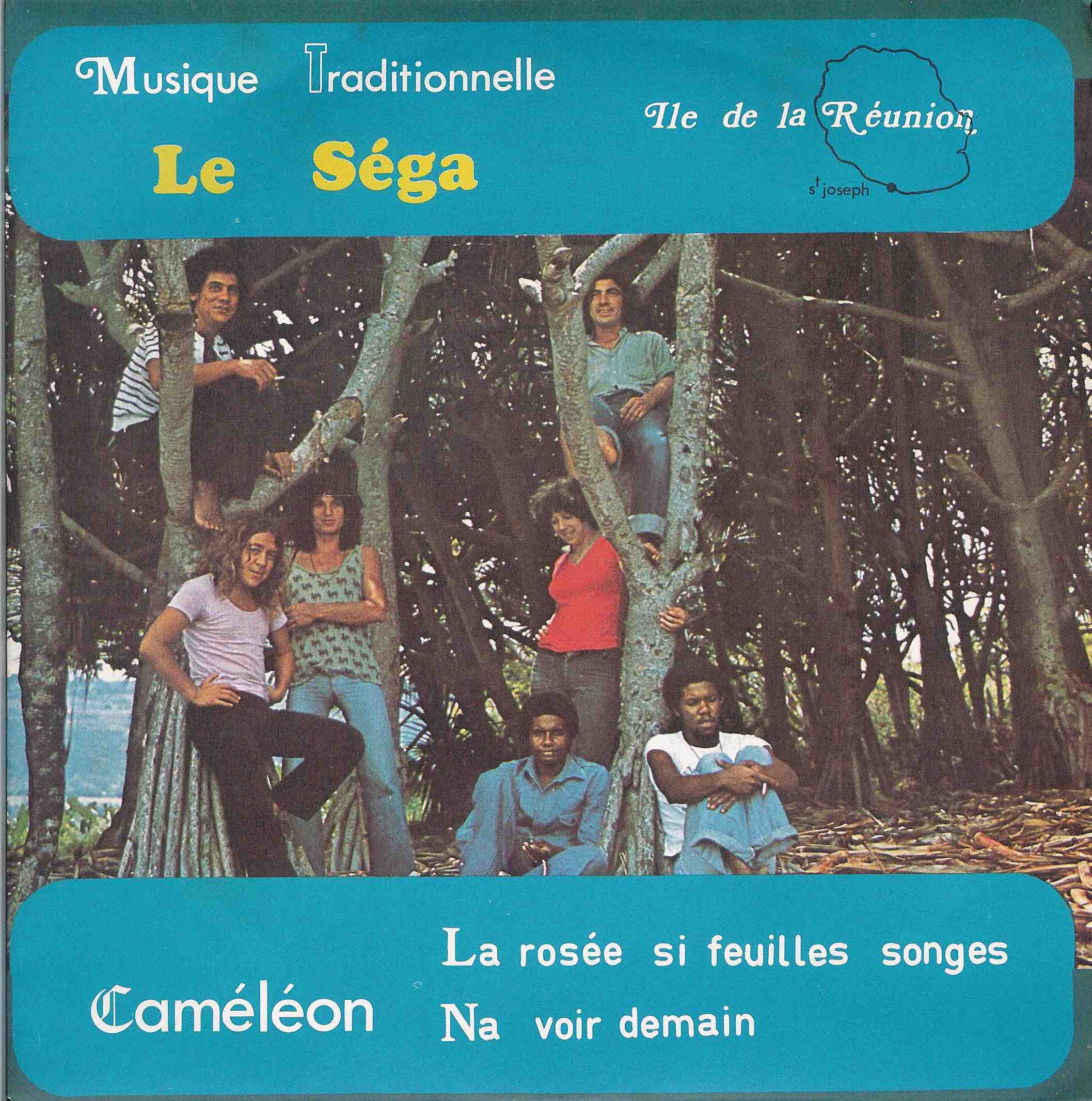
A year after having been formed in 1976 by René Lacaille, the group Caméléon recorded a song composed by Alain Peters La rosée si feuille songes (“Dew on a taro leaf”) on the single Royal 770007. The group’s regular singer Herve Imare (1946-2016), performed this hit, which was re-released in 2008 by the record label Takamba on the album Vavanguer (Taka 0815).
Mam'zelle Paula
 Mam'zelle Paula (A/Arr. Narmine Ducap, C Léon Blanc et Hernandez Marin Rafael) Michou accompagnée par Narmine Ducap et son ensemble, 45 T Dindar D 77 0001
Mam'zelle Paula (A/Arr. Narmine Ducap, C Léon Blanc et Hernandez Marin Rafael) Michou accompagnée par Narmine Ducap et son ensemble, 45 T Dindar D 77 0001 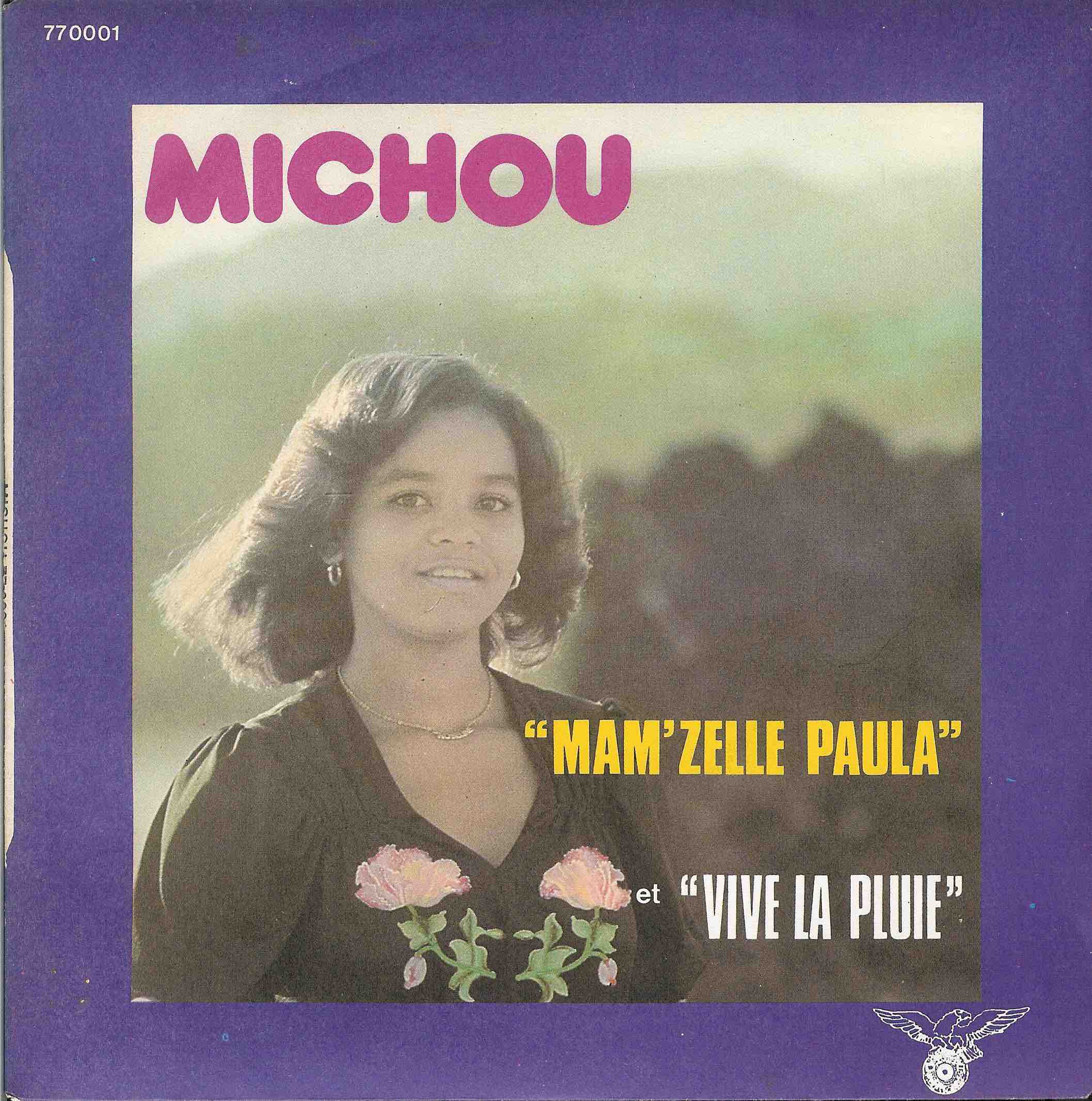
Recorded in 1977 as a single (Tours Diffusion Royale 770001), Mam'zelle Paula is a hit by Michou (born in 1960), daughter of talented guitarist Narmine Ducap (1940-2015). Aged only 17 at the time, she quickly achieved local star status with this song which tells the story of a bar owner at Le Port.
Mon île
 Mon île (Jacqueline Farreyrol) J. Farreyrol accompagnée par R. Lacaille, Tony et Jeannot Rabeson et Williams
Mon île (Jacqueline Farreyrol) J. Farreyrol accompagnée par R. Lacaille, Tony et Jeannot Rabeson et Williams 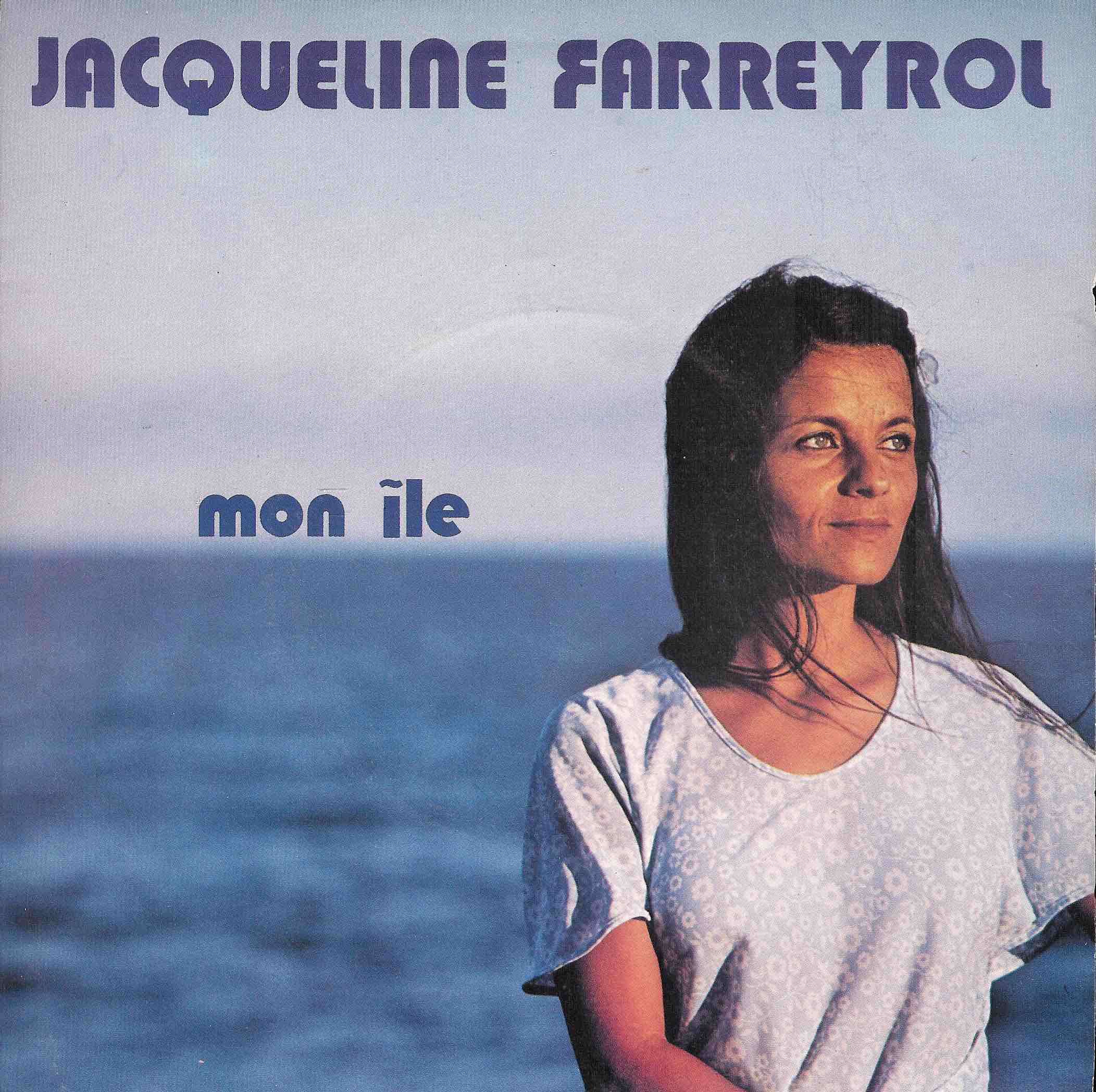
Mon île (“My island”) is the romantic ballad that best captures Reunion Island thanks to the poetic lyrics and vocals of Jacqueline Farreyrol (born in 1939). Released in 1979 on the vinyl single Auvidis PFAV 3001, this song has been covered many times since.
Maloya l'amour
 Maloya l'amour, (Jacqueline Farreyrol) J. Farreyrol accompagnée par la Troupe Kalou Pilé
Maloya l'amour, (Jacqueline Farreyrol) J. Farreyrol accompagnée par la Troupe Kalou Pilé 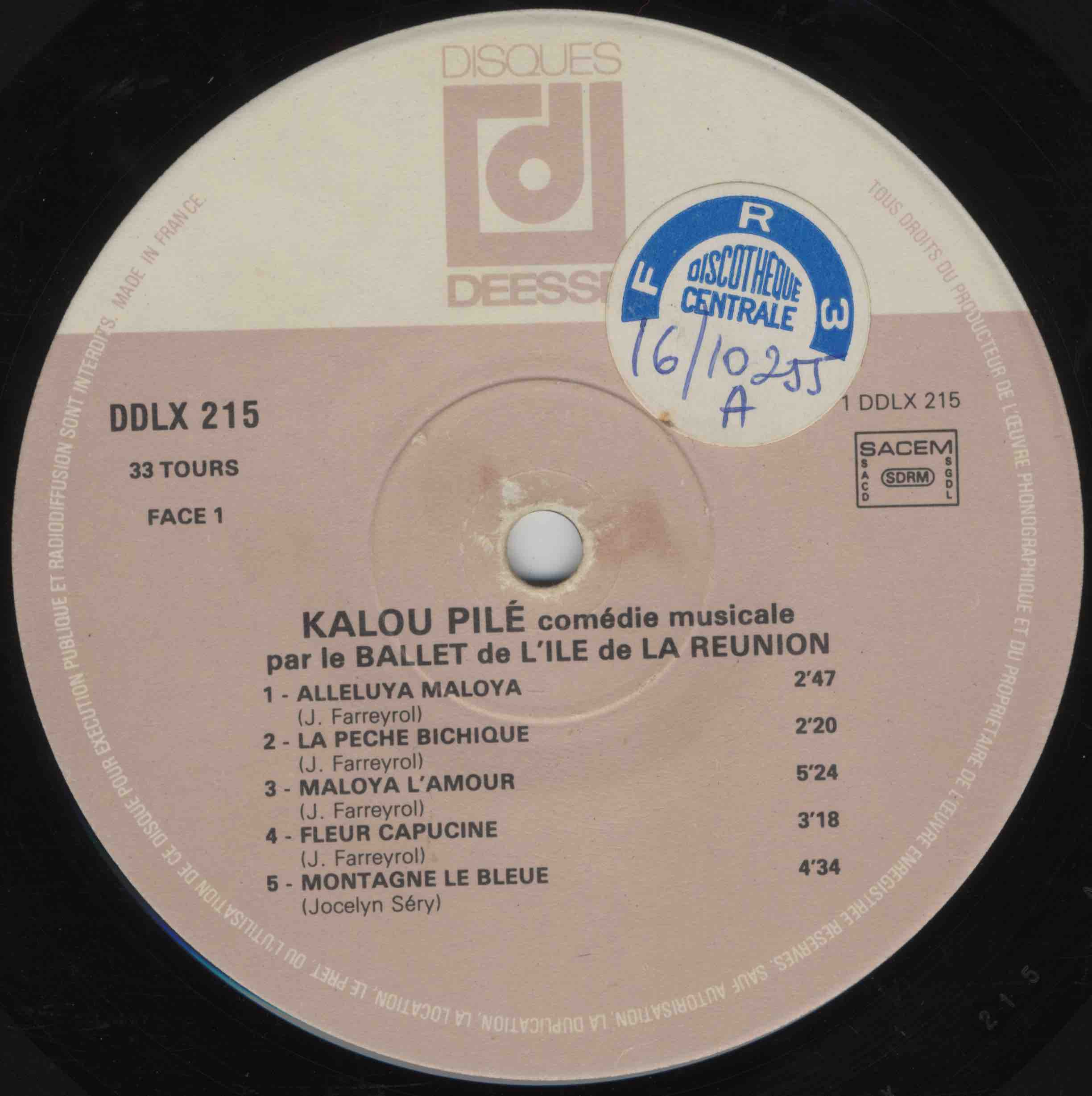
Maloya l’amour was written and composed by Jacqueline Farreyrol, who created the Kalou Pile troupe in 1979, embodying the island’s diversity. Recorded in the early 1980s on the LP Déesse DDLX 215, the song was a great success, despite the troupe’s short lifespan.
Fanie Précourt
